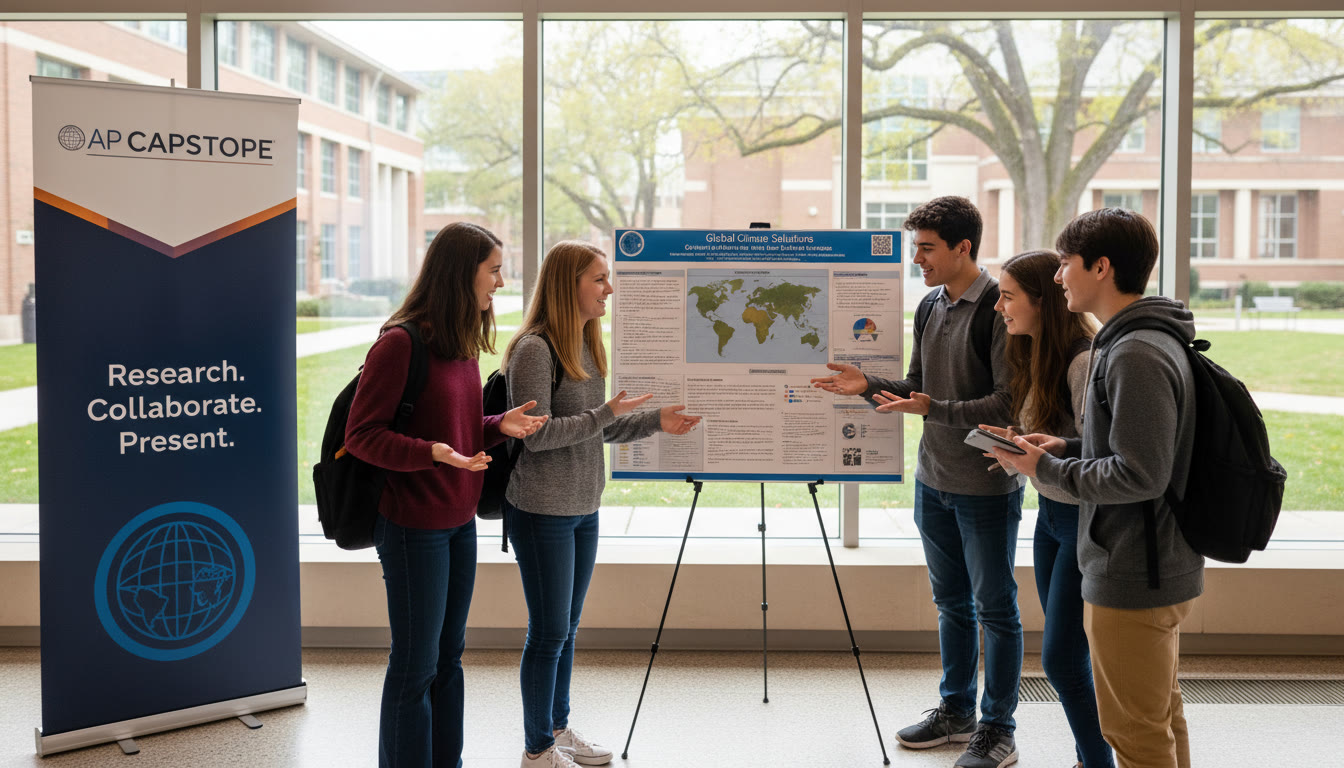Why George Washington and the Elliott School Should Be on Your AP Radar
If you’re a student (or a parent cheering from the sidelines) plotting a path through AP courses toward a top policy, international affairs, or public administration program, George Washington University’s Elliott School of International Affairs deserves a careful look. It’s a place where global issues meet interdisciplinary study, and where AP coursework can show admissions officers that you’re ready for the intellectual grit the Elliott School expects.
This post is written with the practical, hopeful energy you need at this stage: clear guidance on which AP classes matter, how to frame your achievements, ways to structure study time, and how one-on-one, personalized tutoring—like Sparkl’s tailored study plans and expert tutors—can give you that extra edge. Consider this a friendly roadmap you can adapt to your personality, schedule, and goals.
How AP Courses Fit Into an Elliott School Applicant’s Story
AP classes are more than transcripts ornaments; they’re signals. They say: I like intellectual challenge. I can handle college-level content. I’m serious about subjects that matter for global studies, policy analysis, and international relations. For the Elliott School specifically, the most relevant APs are those that build analytical, historical, quantitative, and language foundations.
Core AP Classes to Prioritize
- AP United States History: Shows depth in historical analysis and writing—valuable for comparative historical perspectives.
- AP Government and Politics (US and Comparative): Directly relevant: political systems, civic processes, and policy analysis are front-and-center in Elliott curricula.
- AP World History: Context for international affairs and global systems.
- AP Economics (Micro and Macro): Equips you for policy reasoning, development topics, and data-driven decision making.
- AP Statistics or Calculus: Quantitative literacy matters—policy analysis and empirical research thrive on good stats.
- AP Languages (Spanish, French, Chinese, Arabic, etc.): Language skills are practical and persuasive assets for international study and internships.
AP Capstone and Independent Research
The AP Capstone pathway (AP Seminar and AP Research) deserves special mention. Elliott School programs prize students who can craft research questions, marshal evidence, and write persuasively. A successful AP Research project or a strong AP Seminar performance can function like a miniature undergraduate research experience—perfect for supplementing your application and for interview talking points.

Building an AP Course Plan That Aligns with Elliott School Goals
Think of your course plan as a story arc, not a checklist. Admissions readers want cohesion and growth. Start with a broad base in sophomore year, refine in junior year, and demonstrate mastery or specialization by senior year.
Sample Four-Semester Plan
| Year | Focus | Suggested APs | Why It Matters |
|---|---|---|---|
| Sophomore | Foundation | AP World History, AP Spanish (or other language) | Build global context and language basics |
| Junior | Depth | AP United States History, AP Government, AP Calculus/Statistics | Demonstrates analytical and civic knowledge |
| Senior | Specialization & Rigor | AP Economics, AP Seminar, AP Research, AP Language | Shows research ability and topical focus |
This table is a template. Maybe you’ll swap AP Calculus for AP Statistics, or you’ll do AP European History instead of World History. The key is to build a coherent academic narrative and not overload yourself to the point of burnout. Depth matters more than a long list of unmastered classes.
Study Strategies That Turn AP Scores into Compelling Evidence
High AP scores are persuasive, but how you use them in applications and interviews matters just as much. Below are study and presentation strategies that turn raw performance into a narrative of readiness.
Daily Habits That Build Reliable Mastery
- Active reading over passive cramming: Summarize each chapter in 2–3 sentences, list unresolved questions, and connect ideas to contemporary events.
- Weekly practice testing: Short, timed quizzes beat marathon study sessions. They build recall speed and exam stamina.
- Analytical note-taking: For history and government classes, keep an “argument file” with claims, evidence, and counterarguments you can reuse in essays.
- Language immersion: Daily short bursts—news articles, song lyrics, or 10 minutes of a language app—trump occasional long sessions.
Using AP Exams in Your Application Narrative
When mentioning AP scores in essays or interviews, don’t just list numbers. Explain what studying for AP Comparative Government taught you about institutional design. Describe how your AP Research project revealed a passion for migration policy. Concrete examples convert scores into motivations, methods, and future aims—elements the Elliott School values highly.
Crafting a Standout Application for the Elliott School
Academic credentials are the baseline. The Elliott School looks for applicants who combine academic preparation with curiosity about global systems and demonstrable engagement. Use your AP experience to prove both.
Essays: Show, Don’t Tell
- Use a formative AP classroom moment as a lens: a debate in AP Gov that changed how you view civic responsibility, or an AP Econ project where you built a small model and discovered how incentives shape choices.
- Discuss a specific AP assignment or research finding and tie it to a concrete activity—an internship, Model UN role, community project, or language exchange.
- Highlight skills: critical reading, quantitative reasoning, research design, and cross-cultural communication. Show examples.
Letters of Recommendation and AP Teachers
AP teachers often make excellent recommenders because they can speak to a student’s preparedness for college-level work. Ask a teacher who knows your analytical work, not just your attendance. Give them reminders—key projects, moments, or contributions—to help them write a vivid letter.
How to Use Internships, Extracurriculars, and Summer Programs Strategically
The Elliott School values meaningful engagement. Short stints look empty if they don’t connect to your academic thread. Choose depth over breadth.
Examples of Strategic Activities
- Model UN: Deep involvement with leadership or research roles complements AP coursework in history and government.
- Local policy internships: Work in a city council office or with a nonprofit focused on immigration, public health, or development. Relate your responsibilities to AP research skills and analytical methods.
- Language clubs or service missions: Show sustained commitment to language practice or community engagement.
Practical Timeline: Junior to Senior Year Checklist
| When | What to Do | Why It Helps |
|---|---|---|
| Junior Year (Fall) | Finalize AP schedule; begin practicing timed exams. | Sets foundation for competitive scores and demonstrates seriousness. |
| Junior Year (Spring) | Take at least one practice SAT/ACT if required; start brainstorming essays. | Identifies testing strengths and essay themes early. |
| Summer Between Jr/Sr | Do meaningful internships, language immersion, or an AP Research extension project. | Builds material for essays and interviews. |
| Senior Year (Fall) | Finalize essays; request recommendations; retake APs if needed for higher scores. | Polish your story and present improved mastery. |
Mental Health, Burnout, and Sustainable Excellence
This pursuit is a marathon, not a sprint. High-achieving students often overoptimize hours and underinvest in rest. Competitive programs like the Elliott School want resilient problem-solvers—those are built by consistent, balanced work.
Practical Well-Being Tips
- Schedule deliberate downtime and guard it as you would a study block.
- Use a weekly review session to keep progress visible and avoid last-minute panic.
- Talk to teachers, counselors, or peers when stress spikes—asking for help is strategic, not weak.
Where Personalized Tutoring Fits In
Personalized tutoring can be transformative when used smartly. One-on-one guidance helps you convert weak areas into strengths while preserving energy for other priorities. Sparkl’s personalized tutoring—featuring tailored study plans, expert tutors, and AI-driven insights—can help you prioritize the right APs, build targeted review schedules, and strengthen essay-writing and research skills.
When to Consider Tutoring
- If a particular AP subject is a gatekeeper to your application narrative (e.g., you need strong AP Gov or AP Econ scores).
- When balancing AP prep with extracurricular leadership or internships—tutoring can make study time more efficient.
- Before retake opportunities or high-stakes exams where focused, strategic review yields big returns.
Sample Study Blocks for Busy Students
Short, targeted sessions beat long unfocused evenings. Here are templates you can tweak:
- 30/10 Sprint: 30 minutes focused study + 10 minutes break. Repeat 3–4 times for a productive evening.
- Weekly Deep Dive: 2 hours on Saturday focused on practice questions and timed essays for AP history or government.
- Language Five-A-Day: Five 8–10 minute language tasks across listening, speaking, reading, writing, and vocab each day.
Putting It Together: A Sample Personal Narrative
Admissions readers respond to layered stories. Here’s an example of how AP work, activities, and tutoring can be woven into a compelling narrative:
“In AP Comparative Government, I analyzed how electoral systems shape voter behavior, which led me to design a small survey project comparing civic participation in two local communities. Working with a Sparkl tutor helped me refine my methodology and draft an AP Research proposal that tied class theory to real-world patterns. That project led to a summer internship with a local NGO focused on voter education, and these experiences together convinced me I want to study policy design at a school that connects scholarship to practice—such as George Washington University’s Elliott School.”
Real-World Context: Why Elliott School Students Stand Out
Elliott students typically combine academic seriousness with internships, language capability, and international exposure. AP coursework is a door-opener that proves you can do academic work; the rest of your profile—internships, leadership, research, and personal voice—shows you’ll make the most of a GWU education.
Interview and Campus Visit Tips
- Ask faculty or current students about the intersection between undergraduate coursework and policy labs or internship pipelines.
- Discuss an AP project or research finding during interviews—concrete work beats abstract ambition.
- Observe whether the campus vibe matches your learning style: collaborative, research-focused, or policy-practical.
Frequently Asked Questions Students Ask
Do AP scores guarantee admission?
No—strong AP scores are persuasive evidence of readiness, but admissions decisions weigh the full profile: essays, recommendations, extracurricular depth, and fit. Think of APs as necessary but not sufficient.
Which is better: more APs or higher scores?
Higher scores in a coherent set of APs are usually better than a long list of lower-performing APs. Depth and demonstrated mastery matter more than quantity.
Should I retake an AP exam?
Consider retakes if you can reasonably improve your score without jeopardizing other priorities. A focused retake after targeted tutoring often yields meaningful gains.
Final Thoughts: Make the Journey Your Own
Preparing for the Elliott School—through AP coursework, research, language study, and real-world engagement—is an exercise in intentional growth. It’s about showing that you’re curious, resilient, and ready to connect knowledge with action. Use APs to build credibility, use extracurriculars to show application, and use personalized support—like Sparkl’s tailored tutoring and AI-driven insights—when you need efficiency and focused skill-building.
Above all, keep your story coherent. Let your transcript, your research, your essays, and your activities point toward a single, understandable passion: a commitment to understanding and shaping the world. That clarity is what turns AP achievements into a compelling Elliott School candidacy.

Parting Checklist
- Choose AP classes that build a coherent narrative for international affairs and policy.
- Focus on depth: high scores and meaningful projects beat many shallow APs.
- Use summer internships and research to convert AP learning into applied experience.
- Consider one-on-one tutoring for targeted improvement and efficient study plans.
- Practice mental health habits to sustain long-term performance and creativity.
Good luck—this is a big, exciting path you’re on. Take it step by step, gather strong evidence of your interests, and tell your story clearly. When you do, the Elliott School (and many other programs) will be able to see not just a transcript, but a thinker and doer ready for the challenges of global citizenship.

















No Comments
Leave a comment Cancel